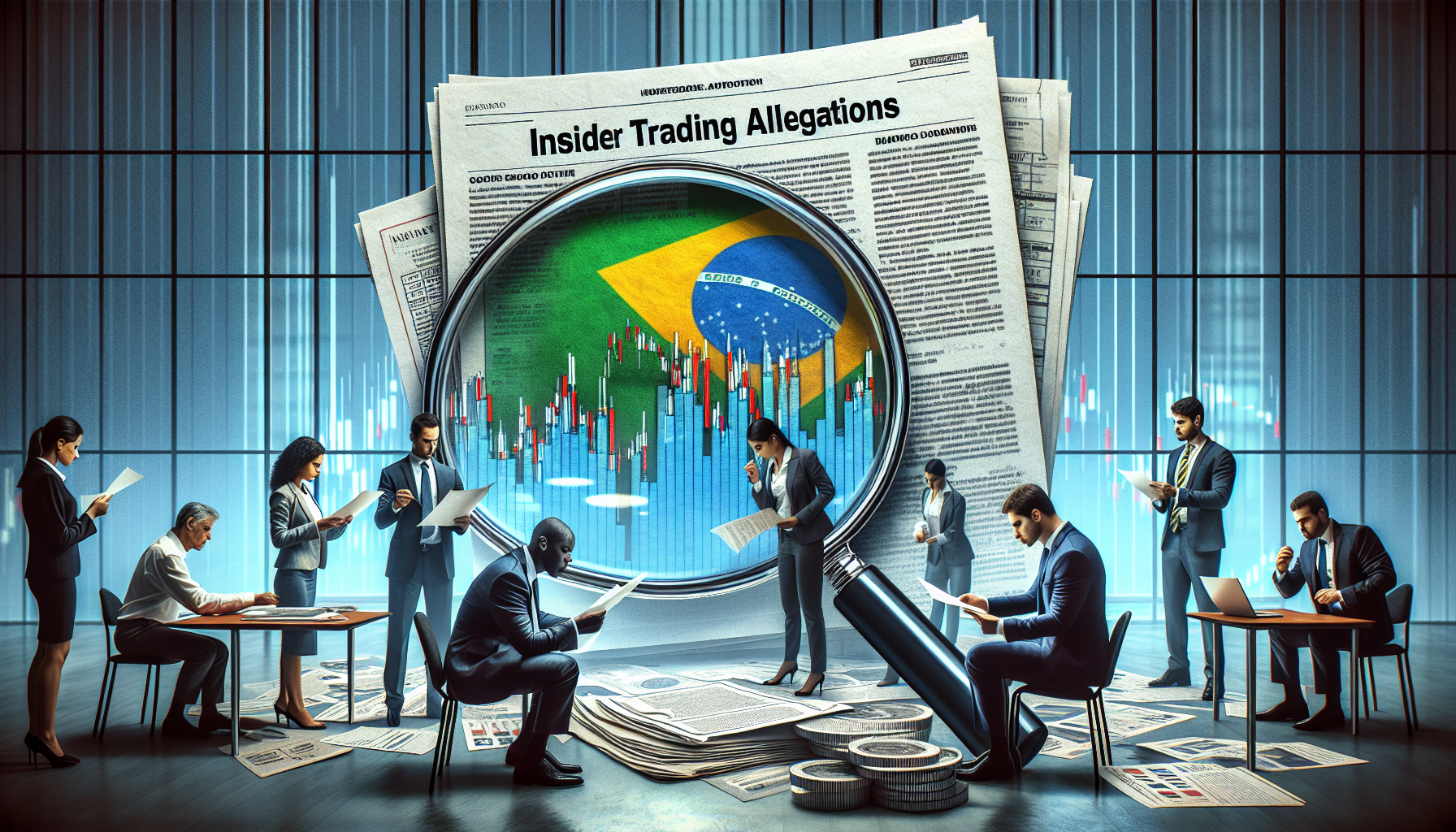
Investigation into insider trading
The Brazilian Supreme Court plays a crucial role in maintaining the integrity of the nation’s financial markets by overseeing investigations into potential illegal activities, such as insider trading. Justice Alexandre de Moraes, tasked with upholding judicial standards, has been instrumental in approving the probe into the alleged misuse of insider information. This approval underscores the court’s commitment to enforcing laws that protect market fairness and deterring unethical trading practices.
The imposition of a 50% U.S. tariff on Brazilian imports has had significant implications for Brazil’s economy. These tariffs, announced in July, targeted a broad range of Brazilian goods, affecting key industries that rely heavily on exports to the United States. The agricultural sector, in particular, faces increased challenges as it grapples with reduced competitiveness in the U.S. market. This move has forced Brazilian exporters to reassess their strategies, potentially seeking alternative markets or adjusting pricing structures to mitigate the impact of the tariffs.
Role of Brazilian Supreme Court
For Australian forex traders and investors, this development serves as a stark reminder of the importance of ethical trading practices. Ensuring compliance with regulatory standards and maintaining vigilance against potential market manipulations is crucial to safeguarding the integrity of the forex landscape.
Brazilian Supreme Court Justice Alexandre de Moraes has given the green light for an investigation into potential insider trading within the foreign exchange market. This probe was prompted by allegations that privileged information might have been used in currency transactions before the July announcement of a significant U.S. tariff on Brazilian imports. The court document, released on Monday, highlights concerns about a possible breach of market integrity.
Impact of U.S. tariffs on Brazil
Such allegations are serious, as they undermine the fairness and transparency that are foundational to the forex market. If proven true, the implications could be far-reaching, impacting investor confidence and the reputation of market participants. The investigation is set to scrutinize these transactions closely, examining whether any individuals or entities leveraged non-public information to gain an unfair advantage.
By granting the solicitor general’s office the authority to proceed with the investigation, the Supreme Court reinforces its position as a guardian of justice. It ensures that any violations of financial regulations are thoroughly scrutinized and addressed. The court’s involvement is essential in navigating the complexities of financial law and maintaining investor confidence in Brazil’s economic systems.
The suspicions arose when Spencer T. Hakimian, founder of the New York-based hedge fund Tolou Capital Management, shared a chart illustrating the movement of the Brazilian real on June 9, the day the tariffs were announced by then-President Trump. This chart indicated unusual foreign exchange transactions that coincided with the announcement. The court document released on Monday highlights the need to delve deeper into these transactions to determine if any legal violations occurred, focusing specifically on whether anyone with advance knowledge of the tariffs engaged in opportunistic trading.
Supreme Court justice approves investigation into foreign exchange dealings
Brazilian Supreme Court Justice Alexandre de Moraes has authorized an investigation into suspected insider trading activities related to foreign exchange dealings. This probe was initiated following suspicions that insider knowledge may have been used prior to the announcement of a significant U.S. tariff on Brazilian imports in July. The solicitor general’s office, AGU, prompted this investigation after a news story suggested that a substantial amount of Brazilian reals might have been sold before the tariff announcement, potentially indicating insider trading activities.
Moreover, the tariffs have influenced currency exchange rates, contributing to volatility in the Brazilian real. As businesses and investors react to the changing trade landscape, fluctuations in currency value can lead to broader economic instability. The Brazilian government, alongside financial institutions, is tasked with implementing measures to stabilize the currency and reassure both domestic and international investors of Brazil’s economic resilience.
The investigation was sparked by a chart shared by Spencer T. Hakimian, the founder of Tolou Capital Management, a New York-based hedge fund. The chart illustrated the movement of the Brazilian real on June 9, coinciding with the day former President Trump announced the tariffs on Brazilian imports. This evidence has become a focal point in understanding the dynamics at play in the forex market surrounding this event.
Allegations of insider trading linked to U.S. tariffs on Brazilian imports
In the complex world of forex trading, the allegations of insider trading linked to the recent U.S. tariffs on Brazilian imports have sent ripples through the market. The suspicion hinges on the timing and volume of transactions involving the Brazilian real just before the tariff announcement. The chart released by Spencer T. Hakimian highlighted an unusual spike in activity on June 9, suggesting that some traders might have had prior knowledge of the impending U.S. policy changes.
The ripple effects of the tariffs extend beyond the immediate economic consequences. Brazilian policymakers are under pressure to respond effectively to this trade barrier, exploring diplomatic channels to negotiate tariff reductions or exemptions. The tariffs have also sparked discussions within Brazil about the need to diversify its export partners and reduce dependency on any single foreign market.
The solicitor general’s office, known as AGU, sought the Supreme Court’s authorization to delve into these transactions. This request came after a news report suggested that a substantial volume of Brazilian reals was sold in anticipation of the tariff news, raising suspicions of insider trading activity.
“The market moves on information, and when that information is not equally accessible, it disrupts the balance,” one industry expert noted.
As the investigation unfolds, market participants will be watching closely, not only for the outcome but also for potential reforms that could arise from the findings, aiming to prevent similar incidents in the future.